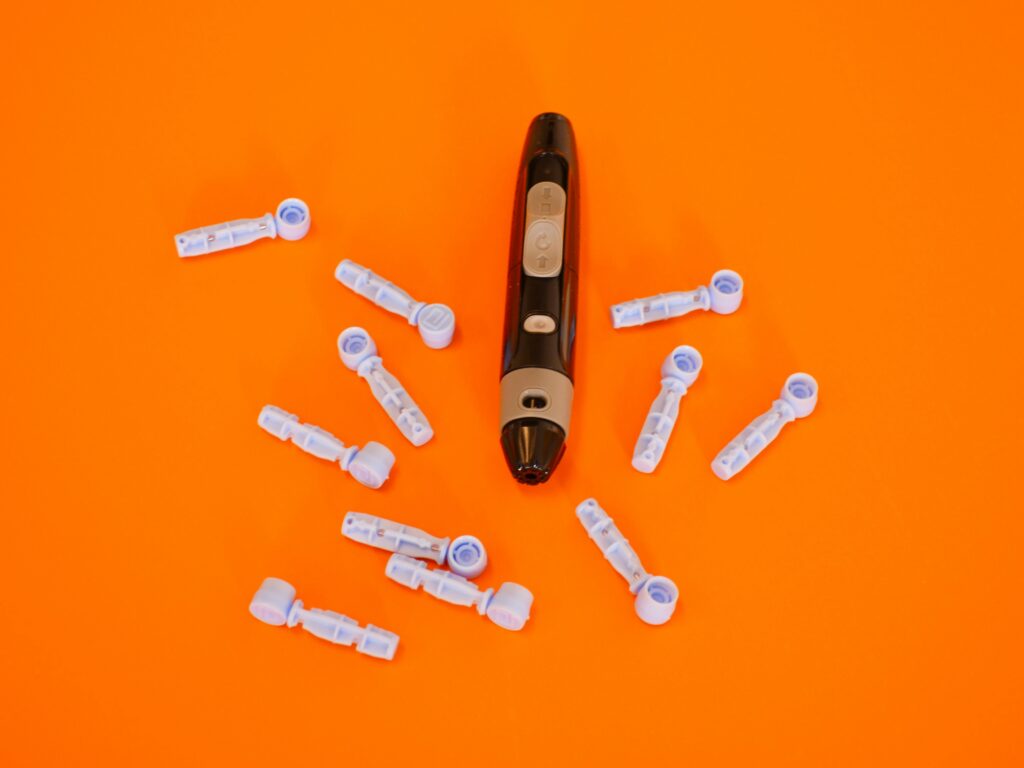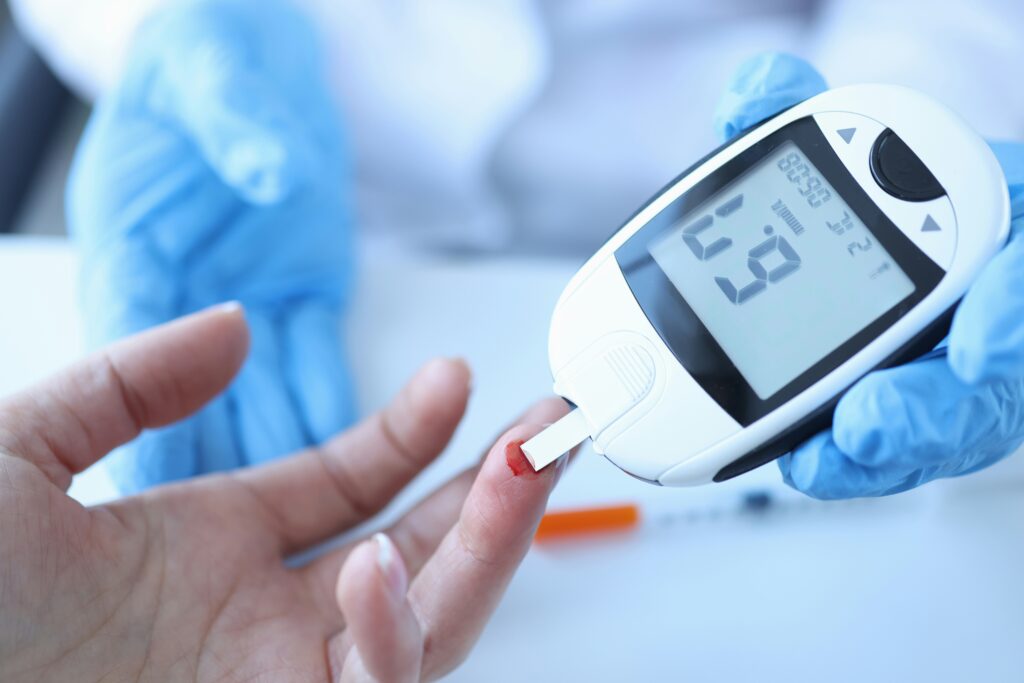Batteling Highs: High Blood Sugar in Diabetes
Battling Highs: High Blood Sugar in Diabetes
Fluctuating numbers are incredibly frustrating as a diabetic. Is high really worse than low though? Short term maybe not, but long-term bouts of your numbers running high can lead to lots of complications like nerve damage, damage to the small blood vessels, and vital organs.
What causes your numbers to run high as a diabetic? There are lots of causes, but I’ll hit on a few of the main reasons why your numbers may be running high that you may not have thought of.
The first cause would be not figuring up your insulin dosages correctly. Whether you are on shots or a pump, math is key to determining the right amount of insulin to take. Inaccurate carb counting is also a big factor in glucose levels. Taking a refresher course in carb counting may help you more accurately determine your meal’s carbohydrate count.
Being sick may cause you to run high or low. Really, any form of stress on your body can release other types of hormones into your system and cause your blood sugar to run high. Locations can affect it too. Personally, if I step foot in my doctor’s office, my numbers automatically rise, and even something like elevation may trigger it.
If your doctor prescribes you any new medications, there is a chance it could run your numbers up. If you are seeing a specialist for any reason, make sure they have your full medical history and know that you are diabetic so they understand how their prescriptions may affect your glucose levels. (Also, having a good relationship with your pharmacist is a great backup because they know which meds can affect your numbers, especially if the doctor forgets you are diabetic.)
Hormone imbalances, including pregnancy and thyroid issues, may make your numbers go way off. Surgeries and pump malfunctions could also cause you to become very high. Last but not least would be changing insulin types. This could cause you to feel very sick, so if your doctor or insurance requires you to change insulin types, be aware that you might not have as good control as you did on the first type.

What are some things you can do to prevent yourself from going high? The one that helps me the most is pre-bolusing before meals. It’s like playing catch-up if I don’t pre-bolus. I try to take insulin about 10–20 minutes before I eat. If I’m at a new place and I’m not exactly sure how much food will be on the plate, I try to count for each thing I order, guess on the low side, and then take a bit more insulin once I see the portions. This gives the insulin more time to kick in and lower the curve or spike of the numbers.
Looking up carbs if you don’t know them is key. Keeping in mind that books, apps, and the internet may not always be perfectly accurate in their postings, if you find you have this problem with a certain food, make a mental note that you may need more insulin for that food next time (like pizza). For tricky foods, you may get better results by setting up a square wave bolus (if you have a pump) instead of a regular bolus. A square wave bolus delivers a percentage of the insulin upfront and then more at a later time, which may be 30 minutes to an hour after eating.
Those with insulin resistance may have better control of their numbers if they take a medication like Metformin, which many type 2 diabetics use. While it doesn’t work for everyone, it may help some achieve better insulin absorption.
If you try all these tricks and your numbers are still running higher than you’d like, it might be time to schedule an appointment with your endocrinologist. They may need to adjust your sliding scale formula or basal rate if you’re on an insulin pump. Diabetes isn’t always a perfect game, and your insulin requirements may change over time, with changes in exercise or portion control. Some days you might have everything figured out, and the next, everything might feel like it’s falling apart.

It’s okay to make mistakes—everyone does—but being able to recognize whether it was a simple dosing error or a constant struggle requiring your doctor’s help could prevent complications like loss of feeling in extremities, loss of eyesight, heart disease, and high blood pressure.
If your doctor tells you that you’re on the path to complications, please take it seriously. This isn’t a joke—this is your life. You’re the one in control, in the driver’s seat. I know it’s hard and a struggle every day, but the most important thing I’ve learned is that each good choice you make prepares you to make another good choice. It becomes a habit, not just something you do because it’s the right thing. When you see the progress from making smarter choices and the effect that eating lower-carb foods and protein has on your numbers, you’ll be encouraged to keep making those choices. Over time, you’ll feel better and better.
By: Miranda Montgomery (Type 1 diabetic for 20+ years) Admin for Type 1 Diabetes Support Group on Facebook with 13.4 K members

https://buyinsulin.com/?fbclid=IwAR0bPS8iLT8BWUODb9EN6c6h3usuPTFtEIivoLL6fhQIWq04JpjZK9MnOIw